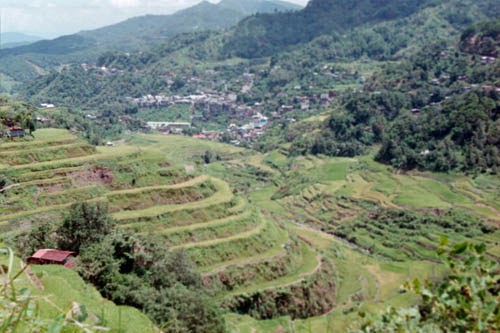We arrived at Yichang at 10pm and our train left from the nearby station at 3:21 in the morning. It was to be an 18 hour journey and I had made a grave miscalculation by reserving the hard seat carriage. This is a carriage that seats 110 people but traditionally houses 200 plus some livestock and poultry... and the toilets are no flush-squat style. Oh so pleasant.
Boarding was no big bother, but we did witness two women fight (physically) over a window seat. The little grandmother who sat first and had the ticket, didn't want to give up her seat to the big mean woman, whom pulled and screamed at the tiny grandmother for 10 minutes until she was yanked onto the floor. Heart-breaking but nothing we could do. So the little grandmother, saving face took her seat next to the brooding mean woman, with grace.
We lasted about 7 hours in the hard seats before Sara had had enough. She'd taken all the spitting and smoking she could handle and walked with the phrase book to the conductor to see about upgrading to a hard sleeper (has a limit of passengers and everyone gets a bed). This required Sara to go from carriage 14 (in the back) to carriage 4 to see about paying for the upgrade.
In Sara's words: I didn't realize how good we had it. Our carriage only had 140 people, and each one I passed through held more and more. Lining the aisle and standing in the bathroom. I stepped on one rooster, and just missed a kitten. It was all elbows and knees, since I was the only white foreign woman in these compartments, and in many cases the only foreign woman many of these people had seen. Women didn't want to move thinking I was after their spot and men didn't want to move for obvious reasons, and when they did it wasn't much.
Once I had arranged the upgrade, my guide/conductor went back and told Ian he could start moving forward, but with the language barrier he didn't tell him how far forward. So on my way back to 14 from 4 I apprised him of the new location, and continued on my way to retrieve my one big pack as Ian was able to carry the rest. He was lucky that we had a stop during this time because he was able to exit the train and run across the platform and re-board and avoid the teaming masses. I on the other hand had to start my third journey across the train, this time with my pack. This is where it started getting funny. I had a couple of I love you's, one offer to help "How can I help you Madam" was what he said. He was so sweet and probably learned it from a movie, but unfortunately he didn't have the magic ability to teleport me forward 8 carriages. And one man did swipe the chance to pat me on the bottom. I knocked a couple over when I turned with surprise and said "Hey now!"
Finally after 90 minutes and three trips, the $12 USD to upgrade both our tickets paid off. We had some rest, a good meal and were in a clean hotel by 10pm that night. It was a character builder, and a valuable lesson. An $8 train ticket isn't worth the trouble if you are traveling for more than a couple of hours. The upside, I am much more swift in a crowd than I was before.
Not to be misunderstood. It wasn't so horrible that I wish we didn't do it. Simply, next time I would do it differently. It was one of those times where we had higher expectations, and it took 4 days to get there. Plus English on the tour would have been a perk.
Once we arrived in our destination of Yangshuo - 10 feet out of the bus station we had a pleasant surprise, and spotted an English couple, Faye and Alan. We had met them in Xi'an and enjoyed their company and after a long couple of days looked forward to our stay in Yangshuo.


































